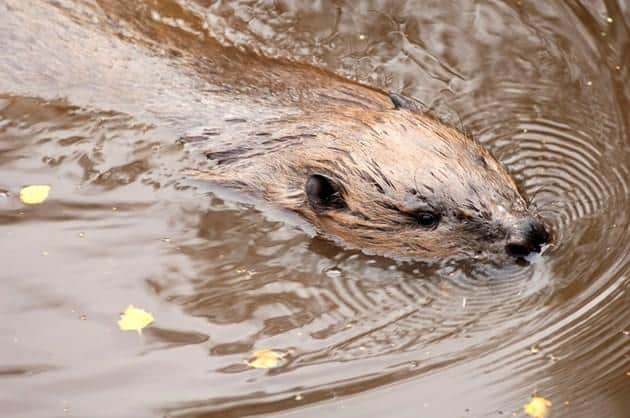Beaver cull licences unlawful if written reasons not given, court rules
Licensed beaver killings have been ordered to halt and previous culls authorised by a Scottish Government agency have been deemed unlawful following a court ruling.
Trees for Life sought a judicial review claiming NatureScot is breaking the law by failing to make the killing of beavers a last resort when land management is required.
Advertisement
Hide AdAdvertisement
Hide AdThe charity is calling for the protected species to be relocated to other parts of Scotland rather than culled.


A Court of Session judge ruled that by not issuing written reasons for granting licences to kill beavers, NatureScot has been unlawful.
In a written judgment published on Thursday, Lady Carmichael said: “The first respondent (NatureScot) has a general practice of issuing licences without giving reasons for doing so.
“In approaching matters on the basis that it has no duty to give reasons for granting a licence, the first respondent has erred in law
“The contention is that the licences should have been reviewed and revoked because they should never have been issued in the first place.”
The court ruled NatureScot must set out openly and fully the reasons why it believes any future licence to kill beavers should be granted.
Out of the five complaints issued by Trees for Life under consideration by the court, four were rejected.
Lady Carmichael added that she was “not satisfied” with some of the arguments put forward by Trees for Life about NatureScot’s “generalised unlawful practices”, adding, “in a number of instances their (Trees for Life) criticisms are misconceived”.
Advertisement
Hide AdAdvertisement
Hide AdIn response to the ruling, Alan McDonnell, Trees for Life conservation manager, said: “The Scottish Government must take this ruling seriously, and it means that from here on in there can be no more rubber-stamping of licensed killing of beavers.
“This is an important victory for accountability and transparency, which will benefit everyone including conservationists and farmers.”
He said relocating beavers rather than culling them will boost biodiversity, help tackle the climate breakdown and create wildlife tourism opportunities.
Mr McDonnell added: “The Scottish Government has been blocking relocation of beavers to areas of Scotland where they belong but are missing, but today’s ruling creates hope that this will change so that farmers will no longer be put in a position where they have no choice but to shoot much-loved animals.”
Lady Carmichael’s ruling applies to all European protected species in the UK.
Robbie Kernahan, NatureScot’s director of sustainable growth, said: “We welcome the court’s decision which, for the most part, vindicates our licensing approach.
“We have been successful on all points of law except that we should have issued written reasons with each licence to explain why it had been granted.
“We will be reviewing this carefully over the coming days to ensure the finding of the court is reflected in our licensing approach.
Advertisement
Hide AdAdvertisement
Hide Ad“Most importantly, the criticism of our underlying licensing decisions was entirely rejected by the court and this does not affect the legality of any acts carried out under the affected licences.
“We have been working with partners for 25 years to bring back beavers to Scotland because of the many benefits they bring to both people and nature, particularly in this crucial time of climate emergency.
“We will continue to listen to and respond to all those involved, through the Scottish Beaver Forum and other avenues, to make licences fair and proportionate.
“But in certain circumstances, beavers can cause problems. In those specific situations where beavers pose a risk of serious damage to farmland or where they occasionally cause a public health and safety concern, we issue species control licences accordingly.”
Sarah-Jane Laing, chief executive of Scottish Land & Estates, a membership organisation for landowners, rural businesses and rural professionals, said: “We are pleased that the Court of Session has chosen to uphold the existing beaver management framework as a sound system through which farmers and land managers deal with negative impacts from beavers such as the destruction of trees and habitat.
“The framework is the best way forward to balance conflicts between conservation and land management and those who require licences can look forward to them being granted in appropriate circumstances in future.”
She added: “We continue to hold the view that lethal control should only be used as a last resort, and greater resources from government and other organisations will allow intervention to occur earlier where required.”
